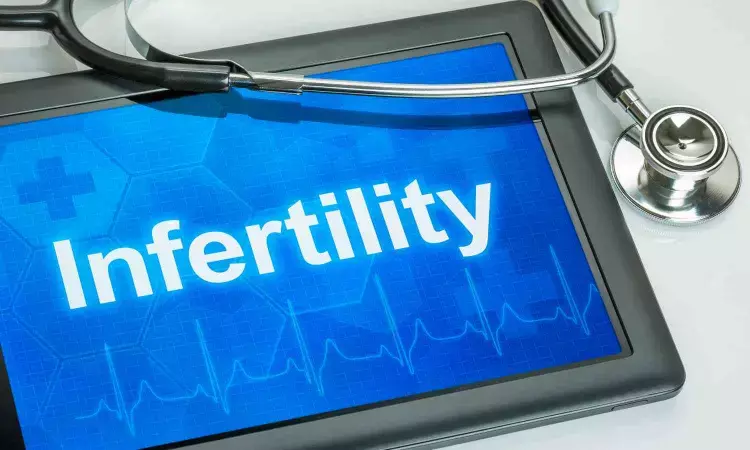- Home
- Medical news & Guidelines
- Anesthesiology
- Cardiology and CTVS
- Critical Care
- Dentistry
- Dermatology
- Diabetes and Endocrinology
- ENT
- Gastroenterology
- Medicine
- Nephrology
- Neurology
- Obstretics-Gynaecology
- Oncology
- Ophthalmology
- Orthopaedics
- Pediatrics-Neonatology
- Psychiatry
- Pulmonology
- Radiology
- Surgery
- Urology
- Laboratory Medicine
- Diet
- Nursing
- Paramedical
- Physiotherapy
- Health news
- Fact Check
- Bone Health Fact Check
- Brain Health Fact Check
- Cancer Related Fact Check
- Child Care Fact Check
- Dental and oral health fact check
- Diabetes and metabolic health fact check
- Diet and Nutrition Fact Check
- Eye and ENT Care Fact Check
- Fitness fact check
- Gut health fact check
- Heart health fact check
- Kidney health fact check
- Medical education fact check
- Men's health fact check
- Respiratory fact check
- Skin and hair care fact check
- Vaccine and Immunization fact check
- Women's health fact check
- AYUSH
- State News
- Andaman and Nicobar Islands
- Andhra Pradesh
- Arunachal Pradesh
- Assam
- Bihar
- Chandigarh
- Chattisgarh
- Dadra and Nagar Haveli
- Daman and Diu
- Delhi
- Goa
- Gujarat
- Haryana
- Himachal Pradesh
- Jammu & Kashmir
- Jharkhand
- Karnataka
- Kerala
- Ladakh
- Lakshadweep
- Madhya Pradesh
- Maharashtra
- Manipur
- Meghalaya
- Mizoram
- Nagaland
- Odisha
- Puducherry
- Punjab
- Rajasthan
- Sikkim
- Tamil Nadu
- Telangana
- Tripura
- Uttar Pradesh
- Uttrakhand
- West Bengal
- Medical Education
- Industry
Male infertility in Indian men linked to lifestyle choices and hormonal imbalances: Study

A new research paper was published in Volume 12 of Oncoscience on September 30, 2025, titled "Lifestyle and hormonal factors affecting semen quality and sperm DNA integrity: A cross-sectional study."
In this study, Saniya Imtiyaz Chamanmalik, Rajendra B. Nerli, and Pankaja Umarane from KLE Academy of Higher Education and Research and Dr. D. Y. Patil Medical College, Hospital and Research Centre discovered that some lifestyle choices and hormone changes can significantly impact men’s reproductive health. These findings are especially important as male infertility continues to increase in India and around the world.
Infertility affects one in six couples globally, with male-related factors contributing to nearly half of all cases. This study addressed a major research gap in India by examining how modifiable behaviors and hormone levels influence semen quality and the genetic integrity of sperm.
The researchers studied 278 Indian men aged 21 to 50. Nearly half of the participants showed abnormal semen parameters. While older age did not reduce semen volume or motility, men over 40 had higher levels of sperm DNA fragmentation, a key marker of genetic damage and reduced fertility potential.
The study found strong associations between poor lifestyle choices and reduced sperm function. Tobacco and alcohol use significantly lowered sperm count, motility, and shape. Alcohol also increased sperm DNA fragmentation, which could negatively affect embryo development. Men exposed to high temperatures at work had more DNA-damaged sperm, showing the harmful impact of heat. Body weight also played a major role: both underweight and overweight men had lower semen quality and higher DNA damage compared to men of normal weight.
“Tobacco and alcohol use were strongly associated with reduced sperm concentration, motility, and morphology (p < 0.001).”
In addition to lifestyle factors, the study also highlighted the role of hormones in male fertility. Men with low testosterone or high prolactin levels had worse semen profiles. Notably, low levels of anti-Müllerian hormone (AMH) were strongly associated with higher sperm DNA fragmentation. Since AMH is produced by cells that support sperm development, it may serve as a useful new marker of sperm health. Levels of other hormones like FSH and LH remained stable, suggesting that targeted hormone testing could improve fertility assessment.
This study used the most recent World Health Organization guidelines for semen analysis and included advanced exams for sperm DNA fragmentation. The results suggest that traditional semen testing may miss important indicators of fertility. Including lifestyle evaluation and hormone profiling could help identify reproductive problems earlier and lead to more effective treatments.
While the study was limited to a single center and did not include long-term follow-up, it provided valuable information about the growing challenge of male infertility in India. The findings support public health efforts to promote healthier lifestyles and regular hormone screening. Future research may help determine whether lifestyle changes or hormone therapies can repair sperm damage and improve fertility outcomes.
Reference:
Chamanmalik S.I., Nerli R.B., Umarane P. Lifestyle and hormonal factors affecting semen quality and sperm DNA integrity: A cross-sectional study. Oncoscience. 2025; 12:115-129. https://doi.org/10.18632/oncoscience.627
Dr Kamal Kant Kohli-MBBS, DTCD- a chest specialist with more than 30 years of practice and a flair for writing clinical articles, Dr Kamal Kant Kohli joined Medical Dialogues as a Chief Editor of Medical News. Besides writing articles, as an editor, he proofreads and verifies all the medical content published on Medical Dialogues including those coming from journals, studies,medical conferences,guidelines etc. Email: drkohli@medicaldialogues.in. Contact no. 011-43720751


